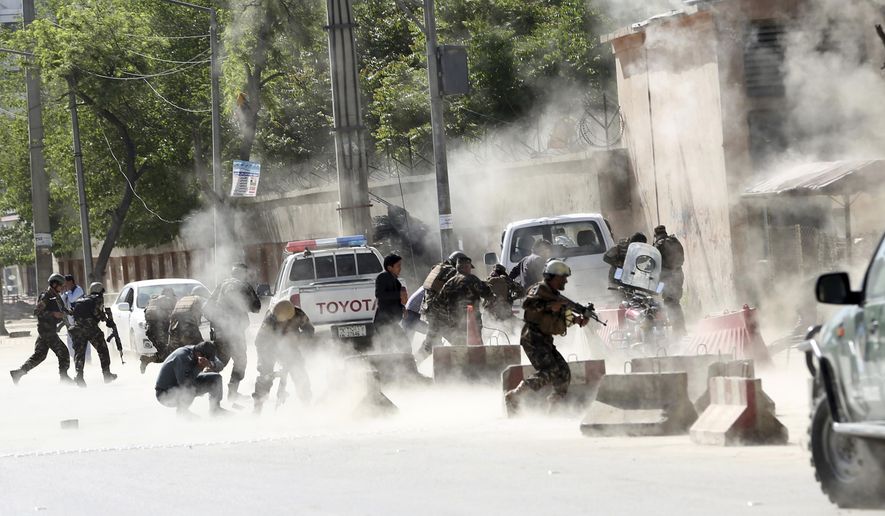Insurgents in Afghanistan are gaining strength while government forces are losing personnel, a U.S. watchdog told Congress Tuesday, a day after at least 31 people were killed in extremist bombings in the Afghan capital of Kabul.
Afghan government forces experienced a “sharp decline” throughout 2017, losing about 36,000 personnel, a decrease of more than 12 percent from the overall level of 296,000 troops who were on duty in January 2017.
Insider attacks against government forces, often by extremist infiltrators, continue to be a problem, with 68 such attacks killing 127 Afghan security personnel and wounding another 112.
Special Inspector General John Sopko’s quarterly report to Congress also said insurgents have made gains in the amount of territory they controlled in 2017. Insurgents now control 14.5 percent of all districts in Afghanistan, an increase of three percentage points since 2016.
Government forces control 56.3 percent of the country, where about 14,000 U.S. troops are deployed.
Two suicide bombings claimed by the Islamic State Monday killed at least 31, including 10 journalists, in attacks near the U.S. embassy and NATO headquarters in Kabul.
“These cowardly attacks are part of a pattern of violence against Afghan journalists, who display great courage every day as they practice a craft essential to democracy,” Mr. Sopko said.
Afghan President Ashraf Ghani announced in February that the government is willing to hold peace talks with the Taliban without preconditions if the Taliban stops committing acts of terror and accepts the Afghan constitution.
Defense Secretary James Mattis said during a surprise visit to Kabul in March that the U.S. wants a victory defined as “political reconciliation.” He said the U.S. goal is to strengthen Afghan security forces enough to convince insurgents that they cannot win on the battlefield.
President Trump has expressed skepticism about prolonging the U.S. mission in Afghanistan, despite his decision last year to deploy several thousand more troops there. Sen. Rand Paul, Kentucky Republican, said Mr. Trump made clear in private conversations last week that he wants to end U.S. involvement as quickly as possible.
“The president told me over and over again in general we’re getting the hell out of there,” Mr. Paul told The Washington Post. “I think the president’s instincts and inclination are to resolve the Afghan conflict.”
White House press secretary Sarah Huckabee Sanders, who condemned the attack on journalists in Afghanistan, said Tuesday that the White House doesn’t have any new plans to announce.
“We laid out our Afghanistan strategy just a few months ago, and there’s no change to that policy at this point,” she said.
The U.S. also has deployed more military resources to Afghanistan in the first quarter of this year, Mr. Sopko reported, shifting more warplanes from Iraq and Syria to Afghanistan and moving the first U.S. Army Security Force Assistance Brigade to the country to increase training capacity of Afghan forces.
The U.S. also has stepped up air strikes against insurgents this year, with the highest amount of mentions dropped since reporting began in 2013.
• Dave Boyer can be reached at dboyer@washingtontimes.com.




Please read our comment policy before commenting.